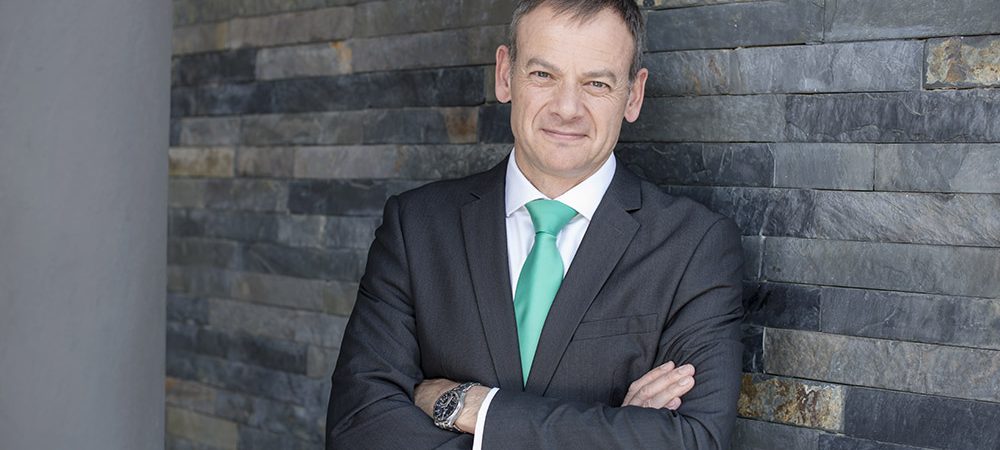In this Get to Know feature, we find out what makes Pieter Bensch, Executive Vice President, Sage Africa & Middle East, tick and what he views to be the the hot talking points in technology.
What would you describe as your most memorable achievement?
Personal achievement is important to me both inside and outside the workplace. Outside work, I’m proud of completing my Joberg2C 900km mountain bike in 44 hours.
It’s hard to single out one professional achievement but bringing together a capable leadership team at Sage and what we have accomplished over the past 12 months is certainly a highlight.
What first made you think of a career in technology?
I studied as a computer science teacher but never started that career because I was more attracted to the challenge of contributing in a corporate environment. I believe that technology can contribute to creating a competitive advantage for individuals and corporates alike.
What style of management philosophy do you employ with your current position?
I lead the Sage business in Africa and the Middle East in an open and consultative way. I like to get out there and meet colleagues, hear their ideas and find out what’s on their minds rather than managing the business from an office. My goal is to help remove the blockages that stop people from reaching their full potential and teams from driving the best possible business performance.
What do you think is the current hot technology talking point?
Artificial intelligence (AI) is rapidly reshaping the world around us, whether we’re looking at virtual assistants like Siri and Alexa, Machine Learning algorithms used to analyse massive datasets or a new wave of technologies that will transform the accounting profession. Far from bringing about wide-scale destruction of jobs, AI offers an unprecedented opportunity to drive economic growth and a wonderful opportunity to elevate automation of mundane tasks so that people have more time to spend on the things that really matter. While routine, repetitive tasks are automated, AI is being introduced to help analyse massive volumes of data from social media, connected sensors in the Internet of Things (IoT), public data sources such as government databases and internal systems.
How do you deal with stress and unwind outside the office?
When I want to relax, I cycle. I particularly enjoy long races and completed the Joburg2C race, covering 900km in nine days. Alternatively, I enjoy trail running to destress and unwind.
If you could go back and change one career decision, what would it be?
I wouldn’t change anything because every experience in my past, good or bad, helped to prepare me for my current career and challenges.
What do you currently identify as the major areas of investment in your industry?
The cloud. The tech industry continues to invest in the transition towards the cloud because we need cloud-native infrastructure to power the next wave of innovation. It remains a priority area for us because cloud-based business solutions are the key to helping our clients achieve the levels of automation, operational efficiency, scale and flexibility they need to keep pace with a fast-changing world. Big data and data analytics also allow us to interact with data in new ways, while the IoT enable us to instantly and automatically capture information. This information can be presented visually, to provide new insights into the business and to help you make better decisions. Blockchain works as a global and public ledger without a central database that can be tampered with. What this means is that we can begin to really start digitising and automating financial transactions that today require manual control mechanisms, checks and balances. Blockchain could also alter how companies record transactions with each other, streamlining invoicing, payments, and other business-to-business transactions.
What are the region-specific challenges when implementing new technologies in Africa?
Depending on the country, the challenges can be as varied as high connectivity costs, a shortage of budget and in-market skills, and a lack of electricity. But a lack of installed technology can, in some cases, offer the opportunity to leapfrog legacy solutions. Thanks to more affordable mobile broadband and infrastructure improvements, there is a big demand for cloud-based solutions that allow people to be mobile and productive. The cloud is helping African businesses to get up-and-running on the solutions they need at a rapid pace and with minimal upfront capital expenditure. Cloud-based business solutions are perfect for many African countries because they are simpler to install and support than on-premise software and do not require organisations to make large, upfront capital investments.
What changes to your job role have you seen in the last year, and how do you see these developing in the next 12 months?
It’s not a new trend that has emerged over the past year, but one that has accelerated. The pressure is on for business leaders to innovate in the pursuit of customer value. Sage is developing a culture that embraces experimentation and a two-way dialogue between customers and our company. Our internal culture fosters collaboration, open honest dialogue and colleagues feel connected to our vision.
What advice would you offer somebody aspiring to obtain C-level position in your industry?
There are two important qualities in the technology industry today, irrespective of the role that you play. The first is that you need to be ready to learn, adapt and change at high speed to keep up with the evolution of technology. The second is that you need to take a customer-centric approach to everything that you do. Constant, customer-led innovation is a core part of our business model and my personal approach. Be ready to be a lifelong learner. And put the customer experience at the heart of everything you do. Get that right, and the rest will follow.
Click below to share this article

